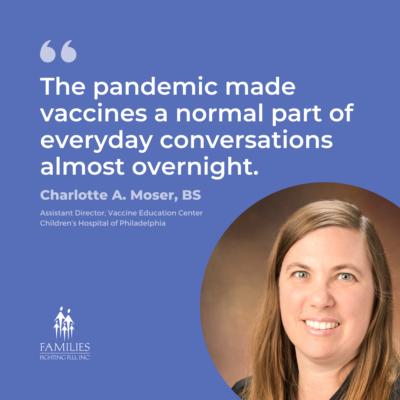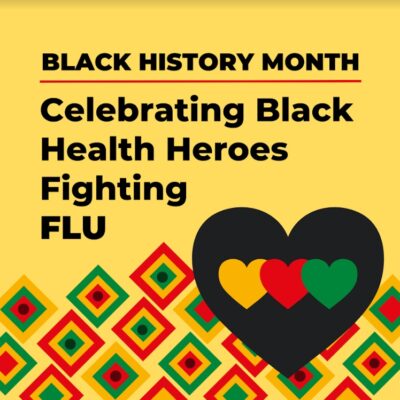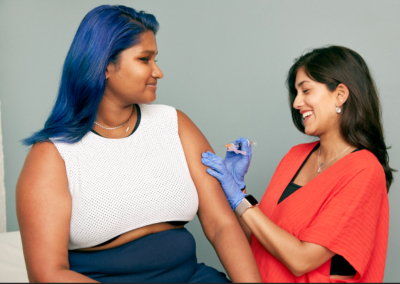- Expert Commentary
Protecting Our Families Amidst Unanswered Questions

Charlotte A. Moser is the assistant director of the Vaccine Education Center at Children’s Hospital of Philadelphia. She is the co-author of Vaccines and Your Child: Separating Fact from Fiction.
It has been a challenging year to be a vaccine scientist and communicator. As assistant director of the Vaccine Education Center at Children’s Hospital of Philadelphia, I already have vaccines on my mind all the time. We work with organizations like Families Fighting Flu to educate parents about the power of vaccines to protect their families from devastating diseases, including influenza.
The pandemic made vaccines a normal part of everyday conversations almost overnight. Last summer, we launched CovidVaccineAnswers.org in anticipation of the many questions people would have about COVID-19 vaccines — while they were being studied and after they became available. Today, we continue to address questions from people around the world and anticipate doing so for many months to come. But as questions have continued to pour in, one thing has become clear — messaging around the need to get a flu vaccine will be tougher than usual in the coming year.
COVID-19 has complicated things when it comes to influenza. First, we’ve had an unusually mild flu season and we can’t necessarily predict what that means for next flu season in terms of individual susceptibility. Second, record low influenza infection rates for 2020-2021 season have impacted the predictive models used to create vaccines for the 2021-2022 season. Third, we’re also concerned that an existing apathy toward “the flu” is being worsened by the comparison of pandemic COVID-19 with seasonal influenza. Perhaps the only thing we know for sure is that, as with every flu season, we don’t know exactly what to expect.
The scientific community continues working to answer big questions around COVID-19, including when or if we need to get additional COVID-19 vaccinations, what the winter will look like when SARS-CoV-2, the virus that causes COVID-19, and influenza are co-circulating in communities that have fully reopened, and if the COVID-19 and flu vaccines can be bundled, or co-administered, if necessary.
Given that we are faced with ongoing uncertainties some people wonder what they can do. Well, it is more important than ever to rely on what we do know and control what we can. Flu vaccines work and are safe. COVID-19 vaccines work and are safe. As such, we need to ensure that we protect our family members against influenza and COVID-19. Likewise, given that rates of childhood immunizations fell during the shutdowns, it is more critical than ever for parents to make sure their kids are up to date on all vaccines — because even worse than flu and COVID-19 both causing illness this winter would be flu, COVID-19, AND other vaccine-preventable diseases, like measles and chickenpox, spreading rampantly through our communities.
We also need parents and community members to continue asking questions and working together to find solutions that keep businesses open and neighbors healthy during outbreaks, stay alert to the changing flu and COVID-19 environment, and remain flexible.
It is hard to be more than one year into an environment with so many unknowns. But I do find hope in this experience. The entire world is interested in vaccines and seeking information. We’ve had the opportunity to touch a lot of people in the last year by answering their COVID-19-related questions, so I’m hopeful that people who may have previously been unsure about the safety of or need for vaccines, particularly the flu vaccine, now feel more comfortable that vaccines are both safe and effective. And I am hopeful that this lived knowledge will translate into higher vaccination rates not only for flu vaccine, but for all vaccines. Because one thing we have learned is that vaccines can — and do — save lives.


